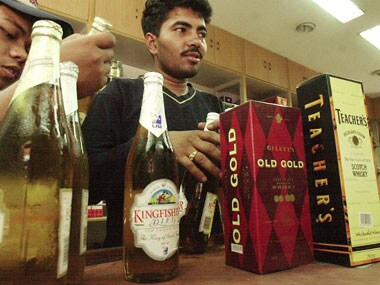The Supreme Court’s judgment on Tuesday upholding Kerala’s liquor policy would have to be termed as the triumph of hope over experience. In its 39-page verdict, the court itself has noted, “History has painstakingly made it abundantly clear that prohibition has not succeeded.” In fact, the apex court has gone a step further and specifically observed that Kerala had a brush with prohibition in the past, but found it to be “unimplementable.” The court, however, pointed to the fact that Kerala has a high rate of alcohol consumption, and said that its new policy should be encouraged. The Supreme Court’s response to the main argument against the ban - that it discriminates between high-end hotels and other such establishments - leaves many questions unanswered. The court noted that it was not the state government, but the Ministry of Tourism, which created a classification of hotels by star ratings. It is true that the Kerala state government, by itself, did not put such a classification in place. But in that case, one has to ask how it can use this as the basis for having different rules for places that sell alcohol. [caption id=“attachment_2565814” align=“alignleft” width=“380”]  Representational image. AFP[/caption] While justifying the exemption for five-star hotels, the apex court said, “Were it not for considerations of tourism, this exception in favour of five-star hotels may have been struck down.” But if the court is convinced that liquor is harmful enough to be banned, it is not clear why tourists should be allowed to be exposed to its ill-effects. Further, if the issue of concern is tourism, there seems to be no reason why there should be discrimination between tourists who can visit five-star hotels and the less affluent ones. Of course, in such a scenario, which side is being discriminated against is a matter of perspective, depending on one’s individual opinion on whether or not a liquor ban is needed. The Kerala government’s ban on liquor, which leaves out five-star hotels, appears to be implicitly based on the assumption that the rich can handle liquor responsibly and with restraint, while the poor cannot do so. The Supreme Court in its verdict has supported the state government’s decision, and has in fact noted in the verdict that the guests in five-star hotels are “of a mature age.” In 2013, the Supreme Court, in a different context, had struck down a controversial legislation for precisely this reason - that it differentiated between establishments catering to affluent classes and those catering to less affluent sections. This was to do with the issue of dance bars in Maharashtra, in which the court had ruled against the state government. In the Kerala liquor ban verdict, the Supreme Court recalled the dance bars case, but did not deal with the argument in detail. The division bench only made a reference to the conclusion that the Kerala High Court reached, that rights of women who danced in such bars were at stake in the earlier case. However, it did not extend the same logic to the rights of people whose livelihood depends on liquor shops, and only asked the state government to take steps to rehabilitate them, while saying that this aspect did not affect the legality of the ban. When it comes to doing away with regulations that are unequal in nature, the Supreme Court has had a mixed record, particularly when it comes to issues involving the more privileged sections of society. In 1981, it had upheld the validity of a requirement that Air India airhostesses would have to retire from service if they were to marry within four years of taking up the job - a regulation that would seem tantamount to blatantly discriminating on the grounds of sex. The top court’s judgment on Tuesday on the liquor ban is the most recent example of the court ruling in favour of a law which puts in place a questionable disparity. It is true that alcohol abuse is a real and widespread problem, one which is airily dismissed in much of the English-language media whenever a controversy about prohibition arises. However, the solution should be to identify the broader reasons behind the abuse, rather than impose a selective ban on alcohol which admittedly does not have a very encouraging precedent. Instead of addressing the ailment, the Supreme Court has merely attempted to treat a symptom. You can read the full text of the judgment here-
imgs1The Supreme Court’s judgment on Tuesday upholding the liquor policy of the Kerala state government would have to be termed as the triumph of hope over experience.
Advertisement
End of Article


)

)
)
)
)
)
)
)
)



